Pharmaceutical ecology as a way to protect the environment
As part of the visiting program, the Academy's teachers - Professor S.K. Ordabayeva and Acting Associate Professor A.D. Serikbayeva took part in the already traditional Second international conference «Integration network of the pharmaceutical ecology – 2024»), held at the A.P. Nelyubin Institute of the First Moscow State Medical University named after I. M. Sechenov (Sechenov University, Moscow, Russian Federation). The event was organized by Sechenov University, “the Kaluga Pharmaceutical Cluster” Association and the National Research Nuclear University («MIPhI»).
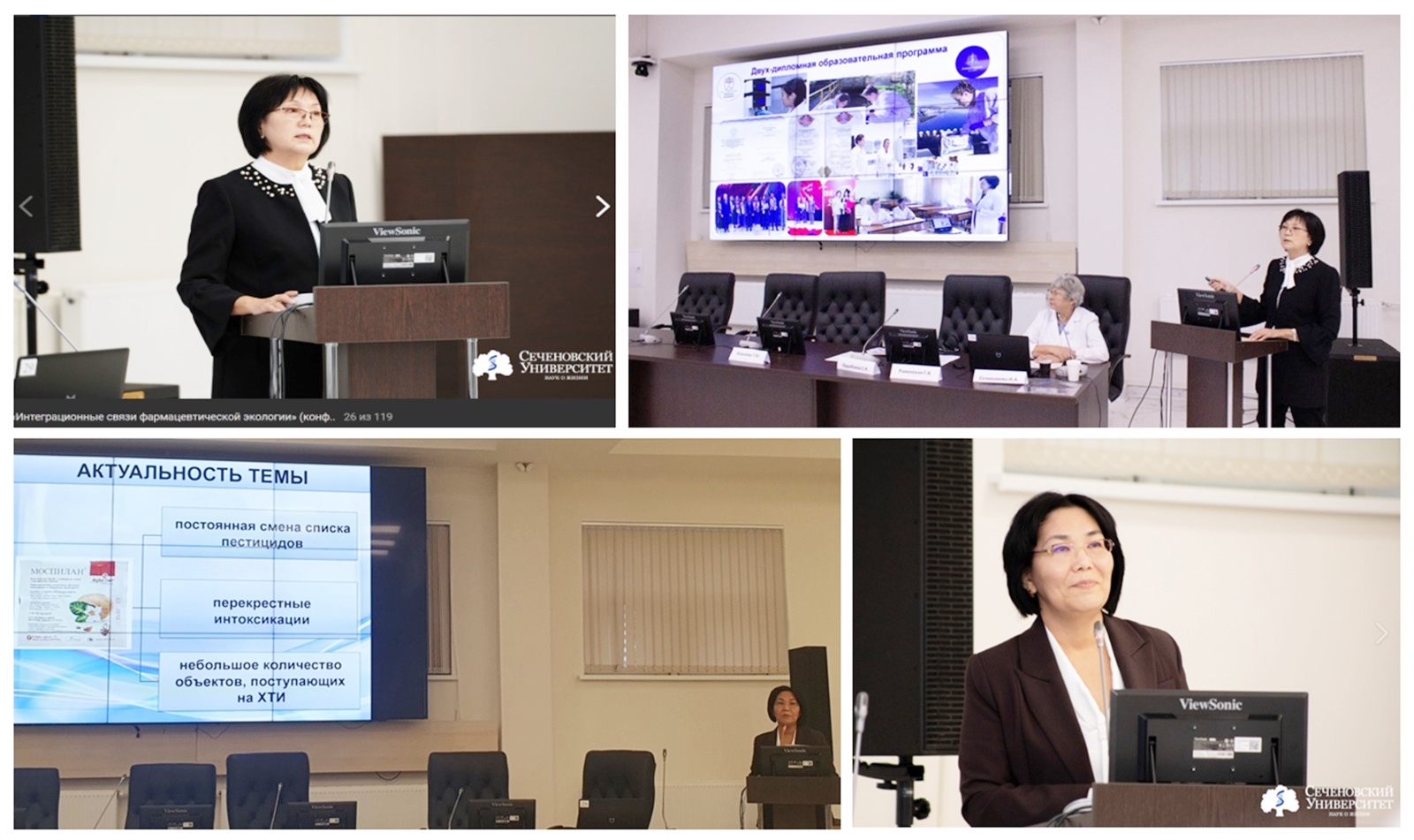
The conference program brought together scientists and teachers, representatives of pharmaceutical production and business, students and young scientists from Russia, Kazakhstan, Belarus, Kyrgyzstan, Tajikistan, Serbia, Iran, Iraq, China, Nigeria and Indonesia at 5 sectional meetings and 2 youth sections.
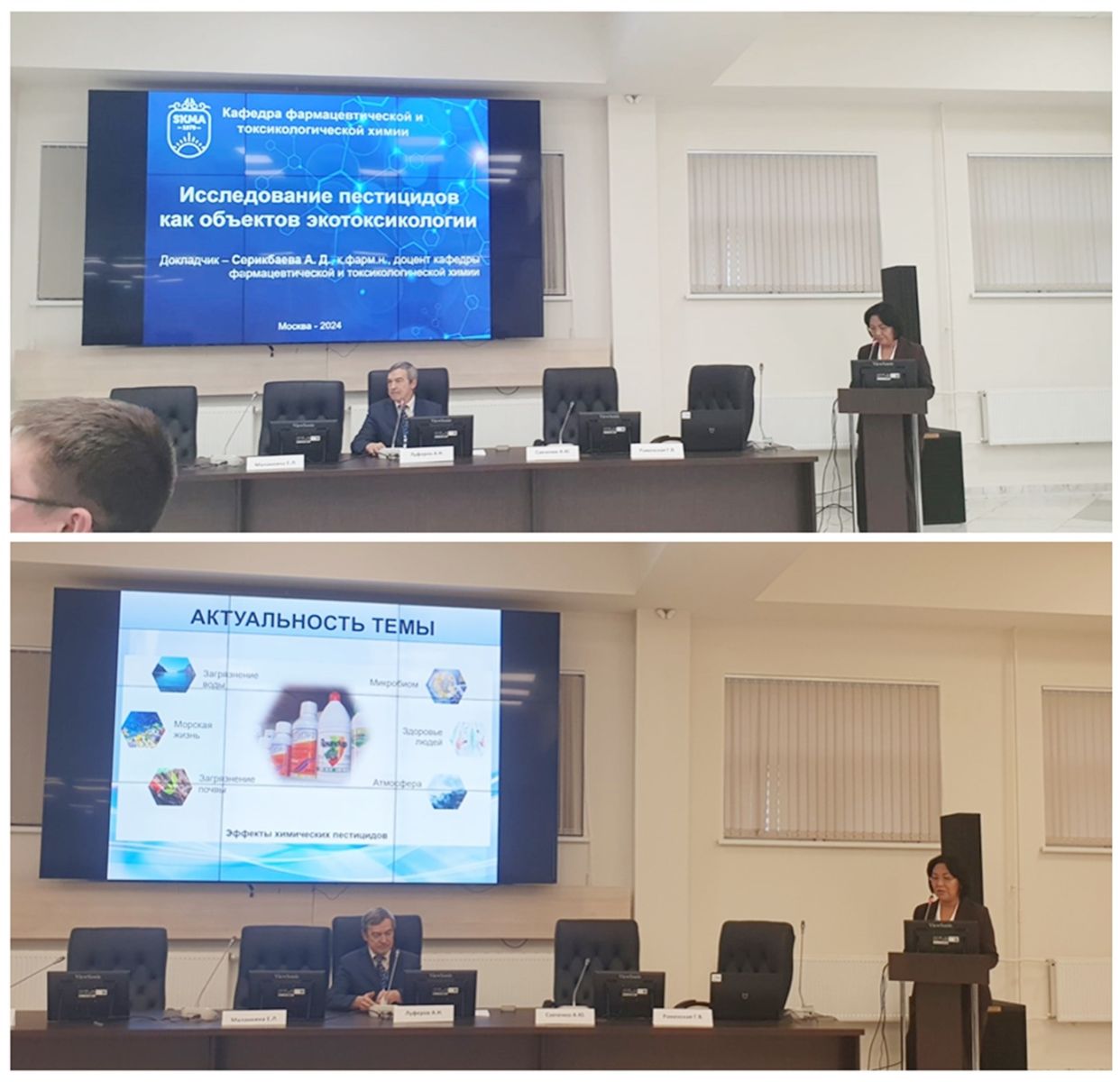
A report on the topic "Study of pesticides as objects of ecotoxicology" was made by Serikbayeva A.D., who shared the results of studies of pesticides from the neonicotinoid group in chemical and toxicological terms. Of particular interest were the developed methods for screening pesticide studies using accessible and selective thin-layer, as well as highly sensitive and reproducible high-pressure liquid chromatography.
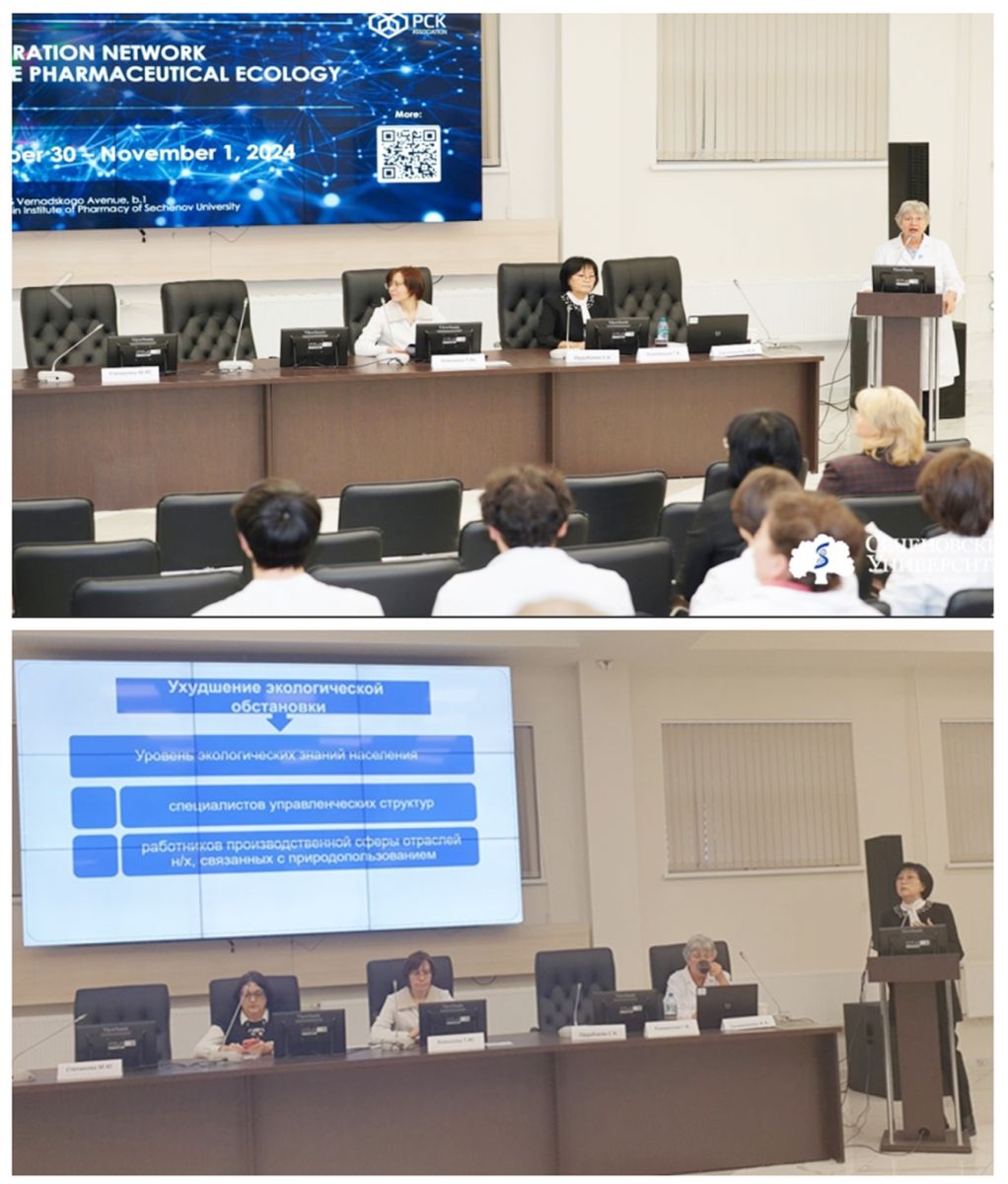
At the section "Modern Challenges and Integration Links of Environmental Education" Ordabayeva S.K. made a report "Environmental Education within the Framework of the Educational Program in Pharmacy in the Republic of Kazakhstan". She shared the experience of implementing environmental education in the country, which is carried out through the "greening" of academic disciplines, international cooperation in this area at the bachelor's, master's and doctoral levels. She paid special attention to the problems of pharmaceutical ecology in Kazakhstan, which are based on regulatory issues, personnel training, scientific research and environmental monitoring for the content of drug residues.
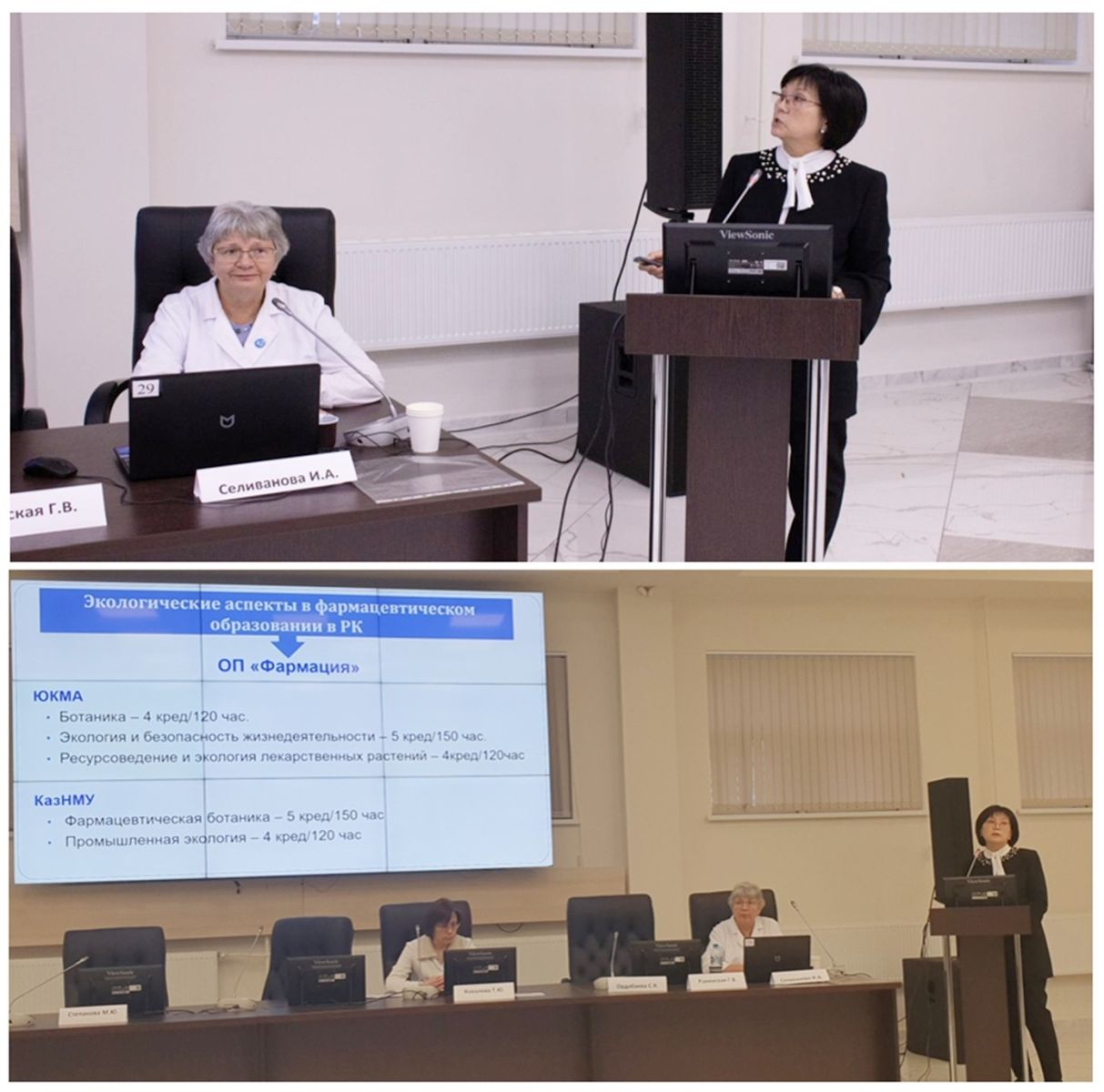
The Academy's youth section was attended by 2nd-year master's student Abdukarimova K.A. and 2nd-year doctoral student Karabayeva A.N., who are on a scientific internship at Sechenov University. Karabayeva A. N.'s report aroused great interest. "Development of a unified method for sample preparation of water samples by liquid-liquid extraction", which is an important stage for subsequent monitoring of aqueous samples for the content of drug residues.
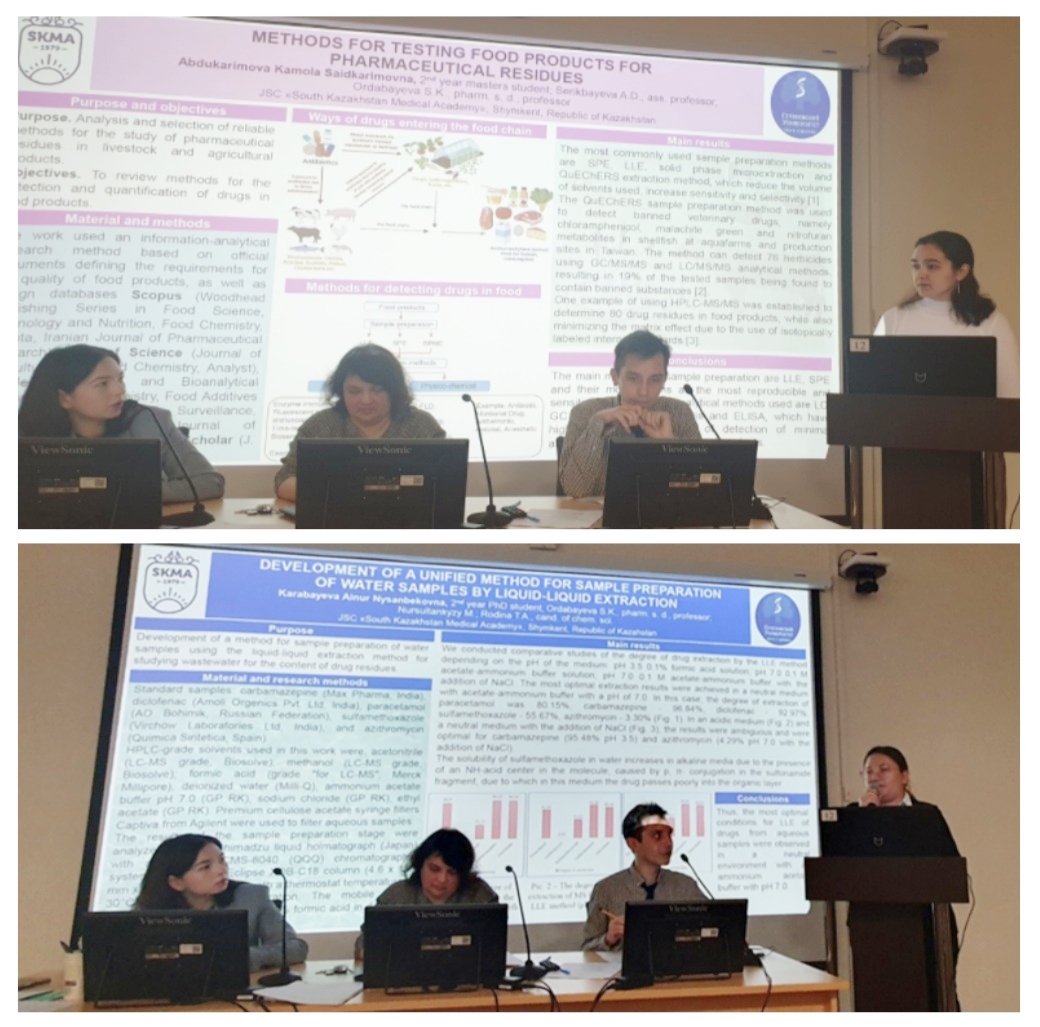
Abdukarimova K. A. in the report "Methods for testing food products for pharmaceutical residues" highlighted the problems and solutions of food product research from the point of view of pharmaceutical ecology, which took 1st place according to the results of the competition.
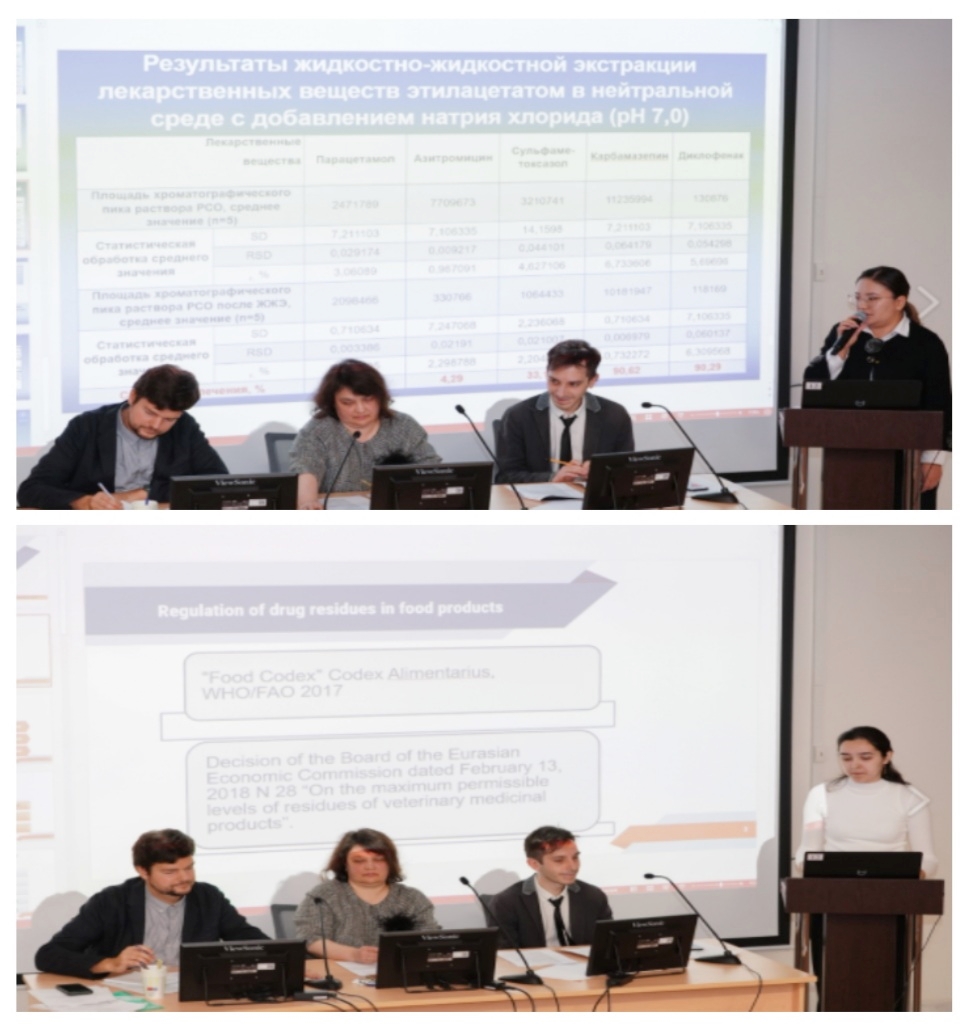
The visiting program of teachers was held at the Department of Pharmaceutical and Toxicological Chemistry named after A.P. Arzamastsev, which included lecturing, conducting laboratory and practical classes and SIWs, hosting a colloquium, certification of practical skills at the specialist and master's level, as well as an exchange of scientific and pedagogical experience with the teachers of the department.
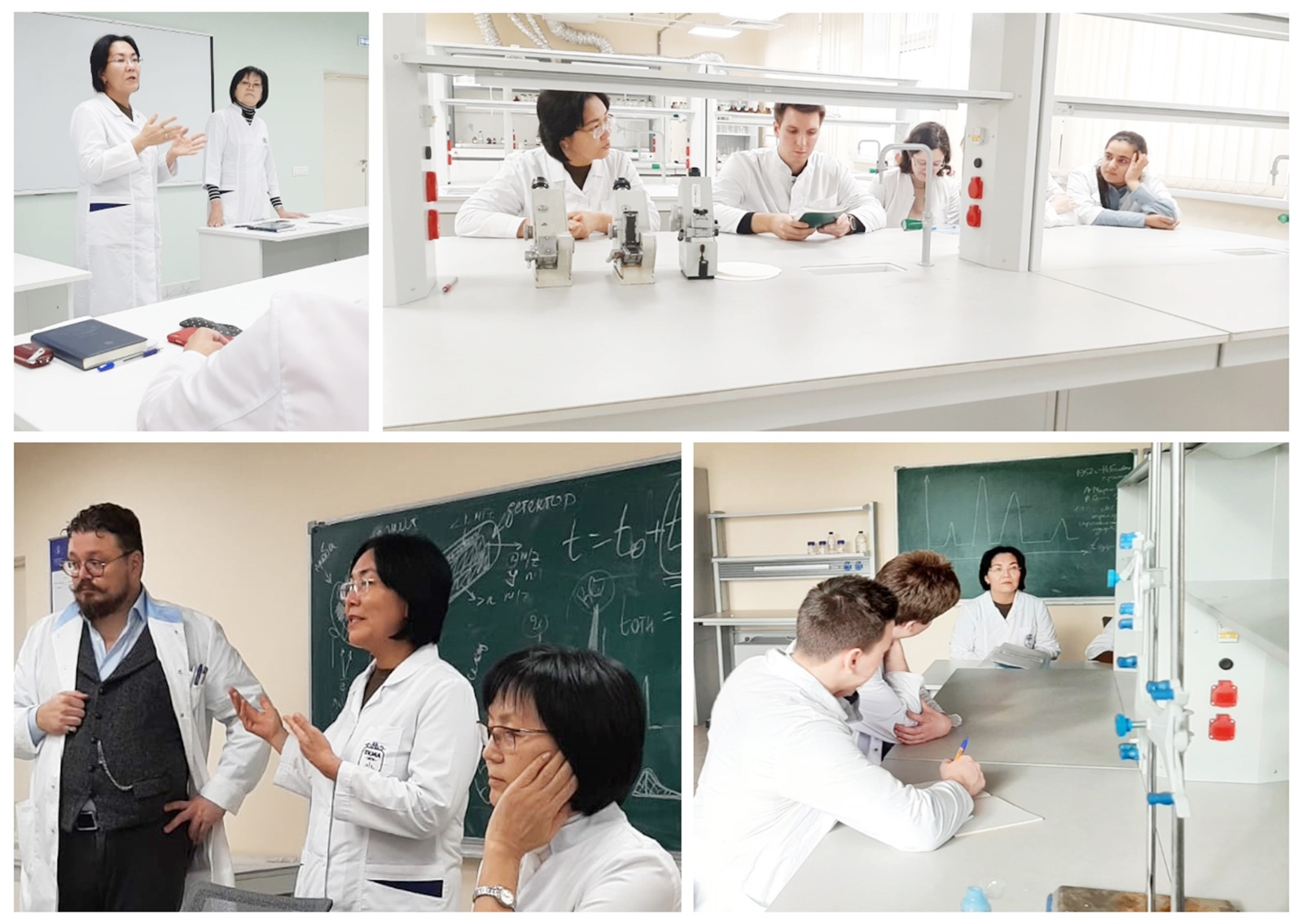
Lectures and laboratory and practical classes by Serikbayeva A.D. were held for 4th-year students in toxicological chemistry on such topics as "Biochemical toxicology. Toxicokinetics. Biotransformation of toxicants in the body", "Chemical and toxicological analysis of volatile poisons", "Chemical and toxicological analysis of metallic poisons", etc. The classes considered the theoretical foundations and practical methods of sample preparation, detection and quantitative determination of the specified objects of toxicological analysis.
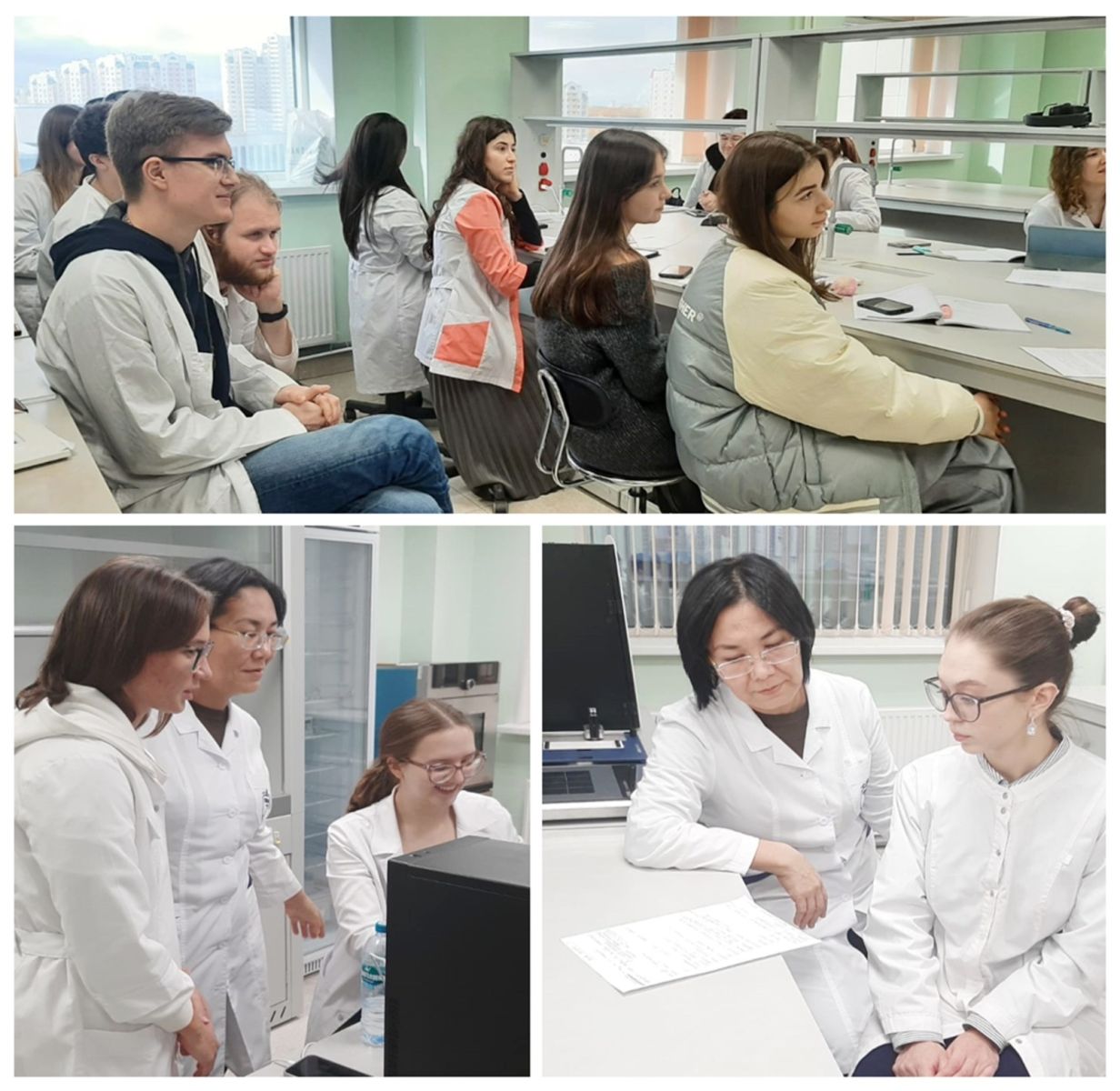
Ordabayeva S.K. conducted classes on the disciplines "General Pharmaceutical Chemistry", "Special Pharmaceutical Chemistry", "Standardization of Medicines" for students of the 3rd, 4th, 5th years.
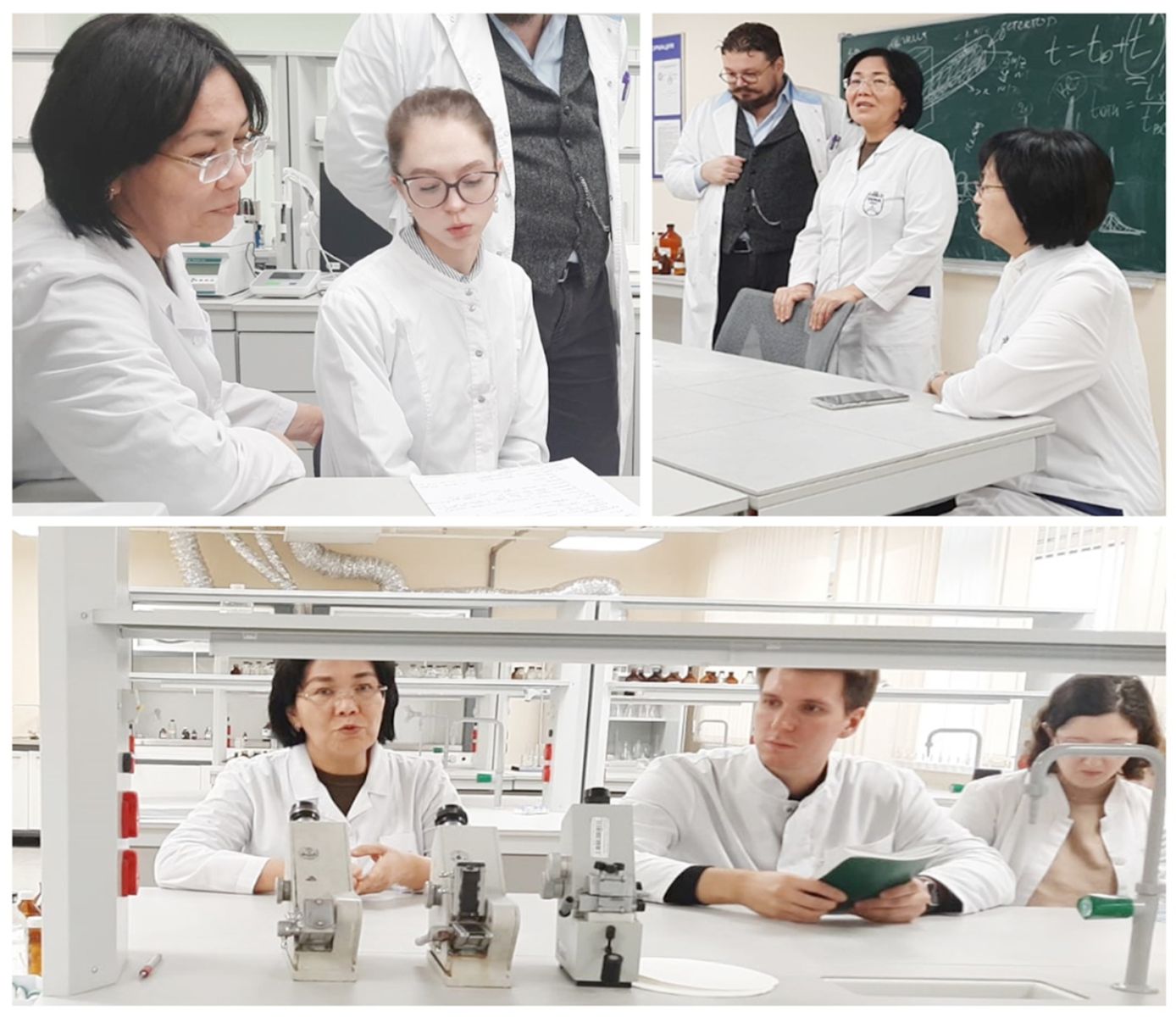
Lectures included such topics as "Analysis of drugs, derivatives of organic compounds: alcohols, ethers, aldehydes and carbohydrates", "Analysis of drugs, derivatives of aromatic amino acids", etc.
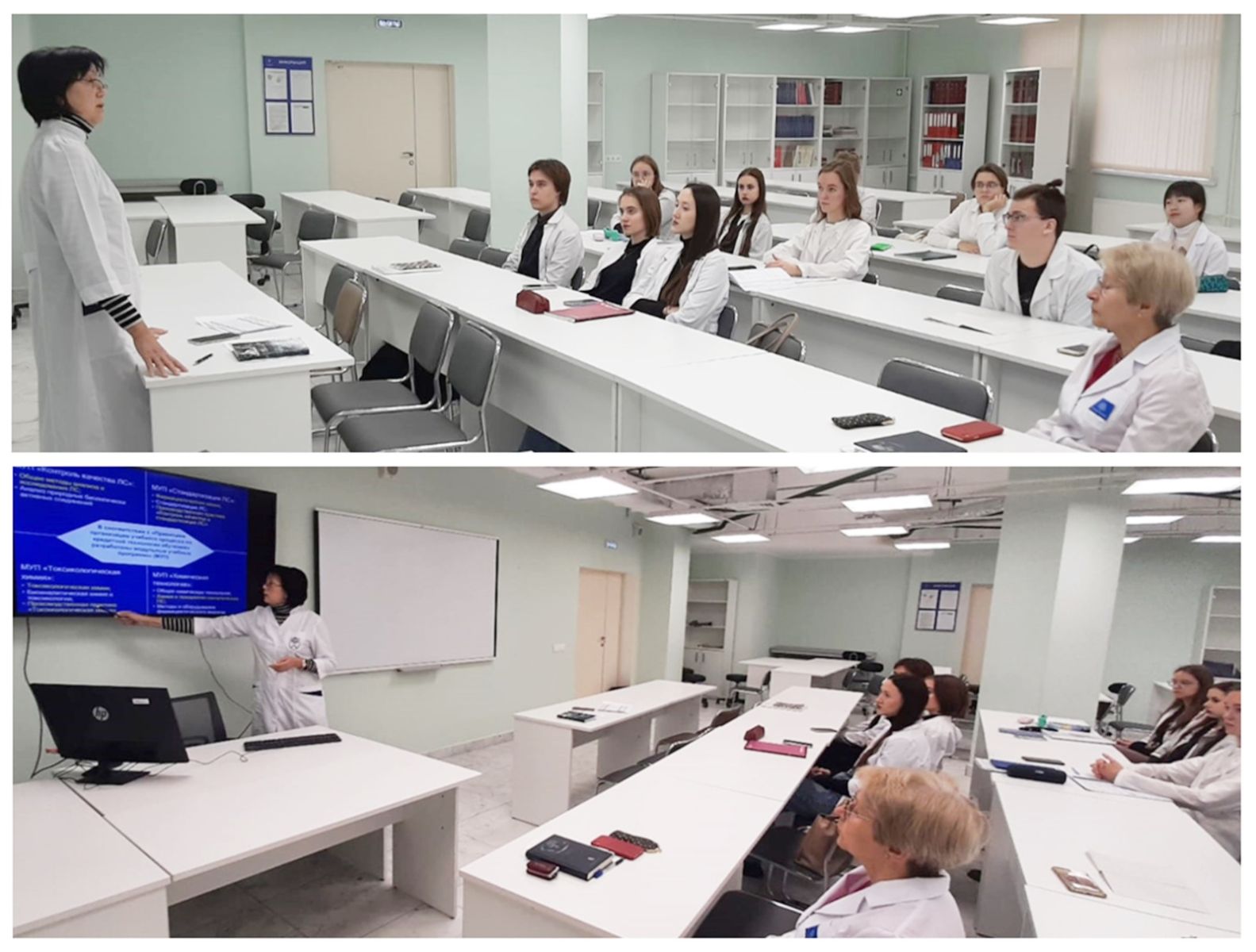
Laboratory and practical classes and certification of practical skills of 4th-year students were conducted on the module "Aromatic Medicines". Of particular interest to students and teachers were joint educational programs - implemented at the master's level and planned at the specialist/bachelor's level, features of the program of the module "Toxicological Chemistry".
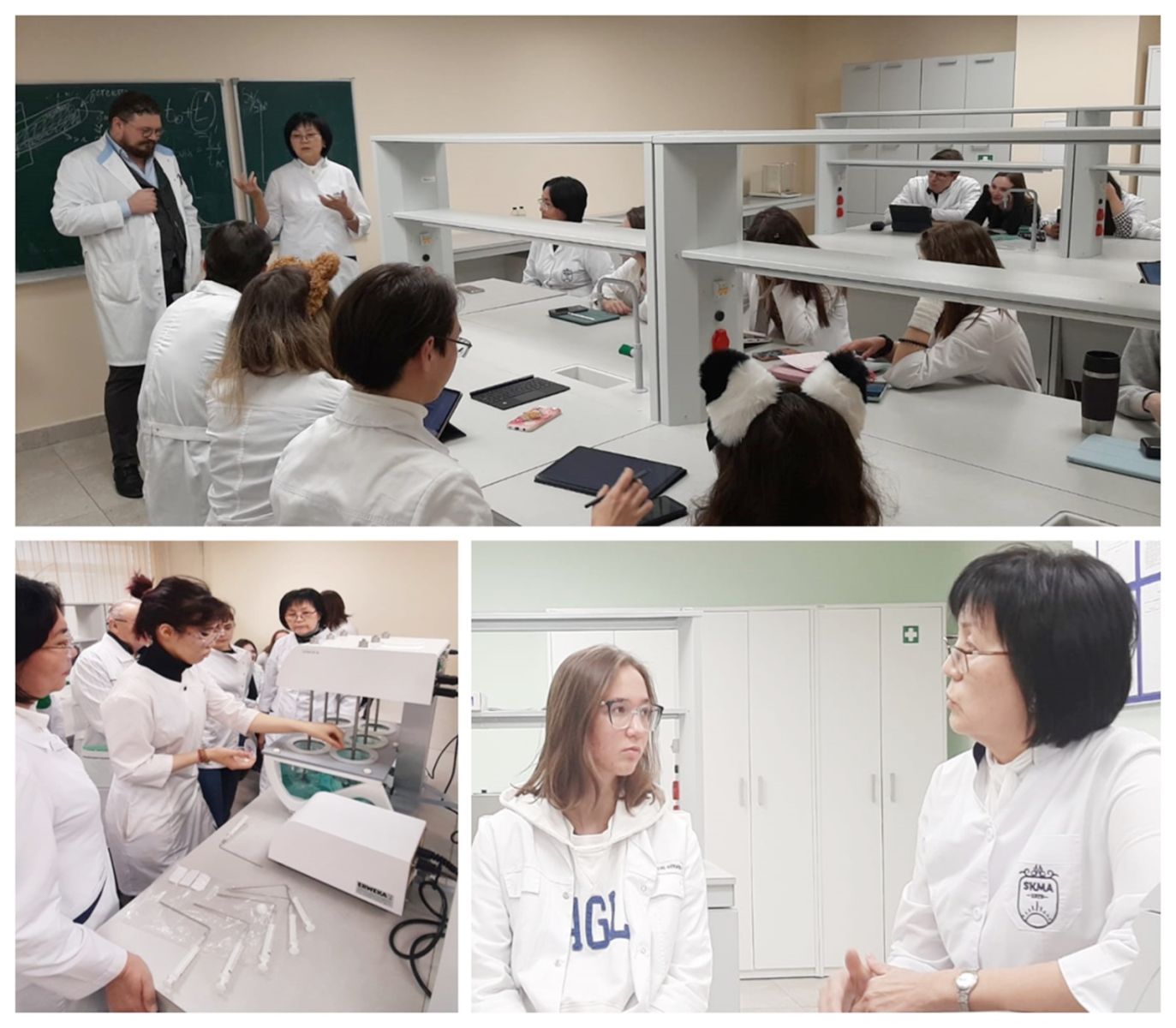
The busy program of the visit was completed by summing up the results with the director of the Institute of Pharmacy named after A.P. Nelyubin, Professor G.V. Ramenskaya, who expressed sincere gratitude for mutually beneficial cooperation, active participation in annual scientific and practical forums on pharmaceutical science and hope for the continuation of the projects started in both educational and scientific aspects.
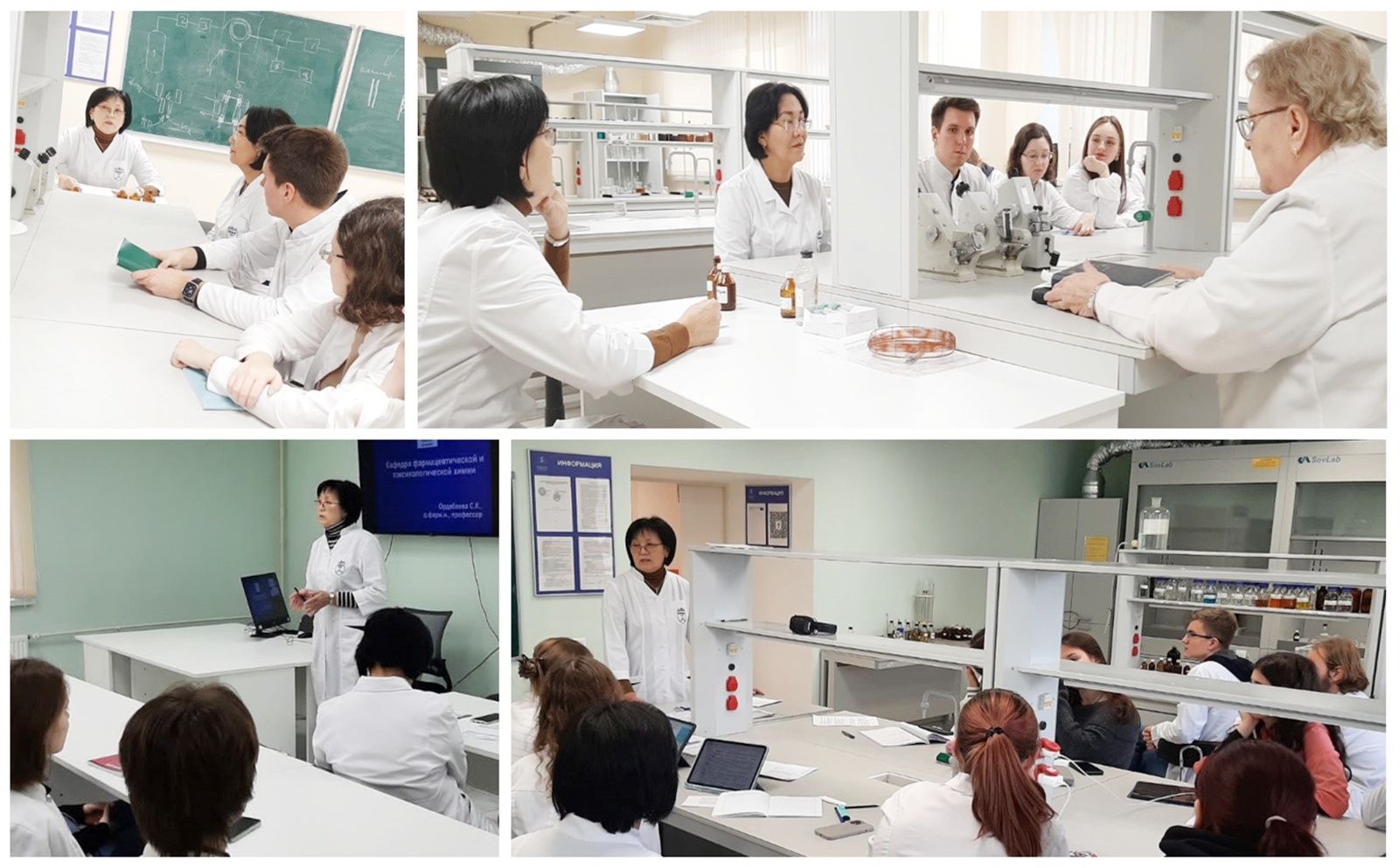
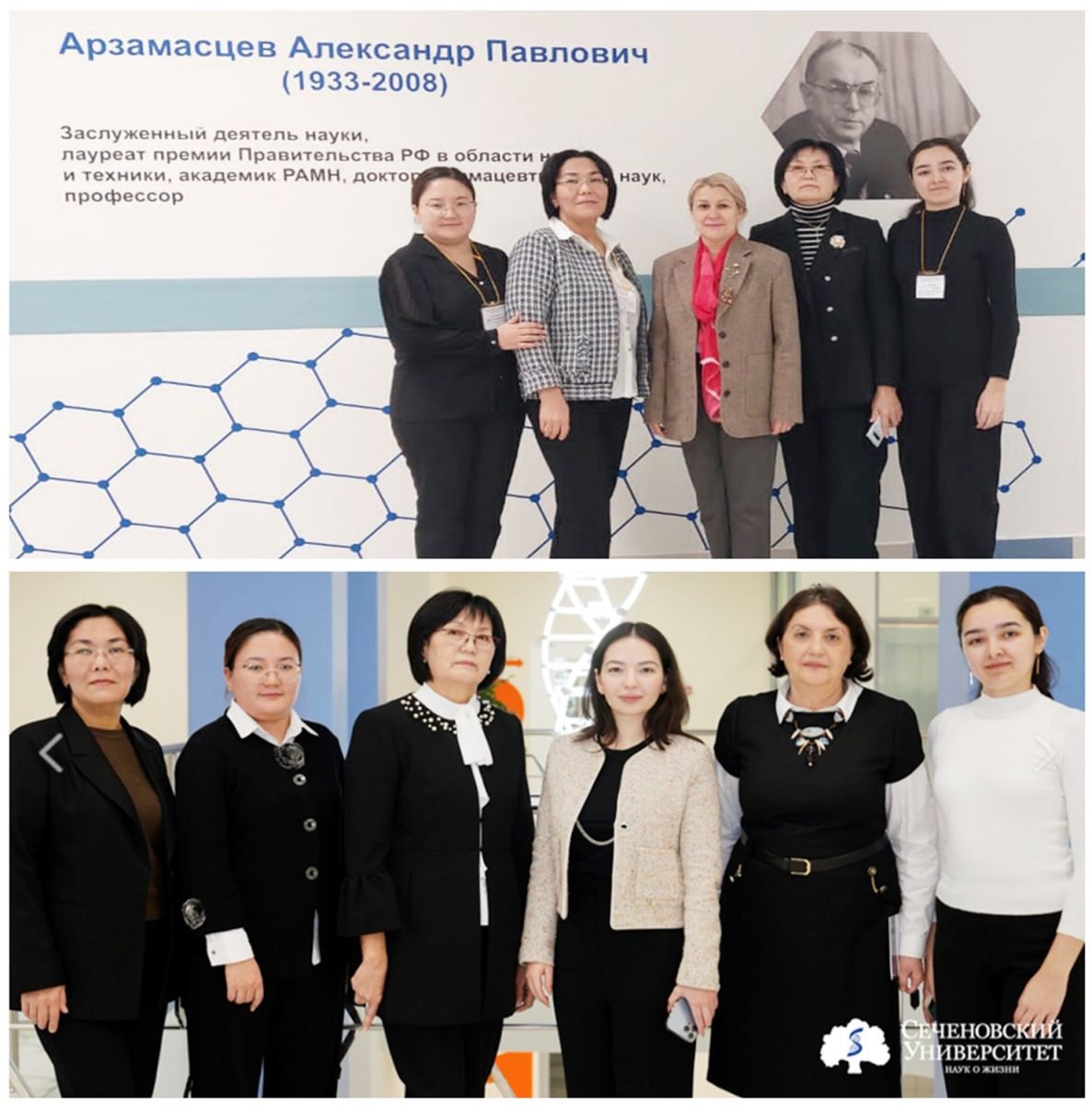
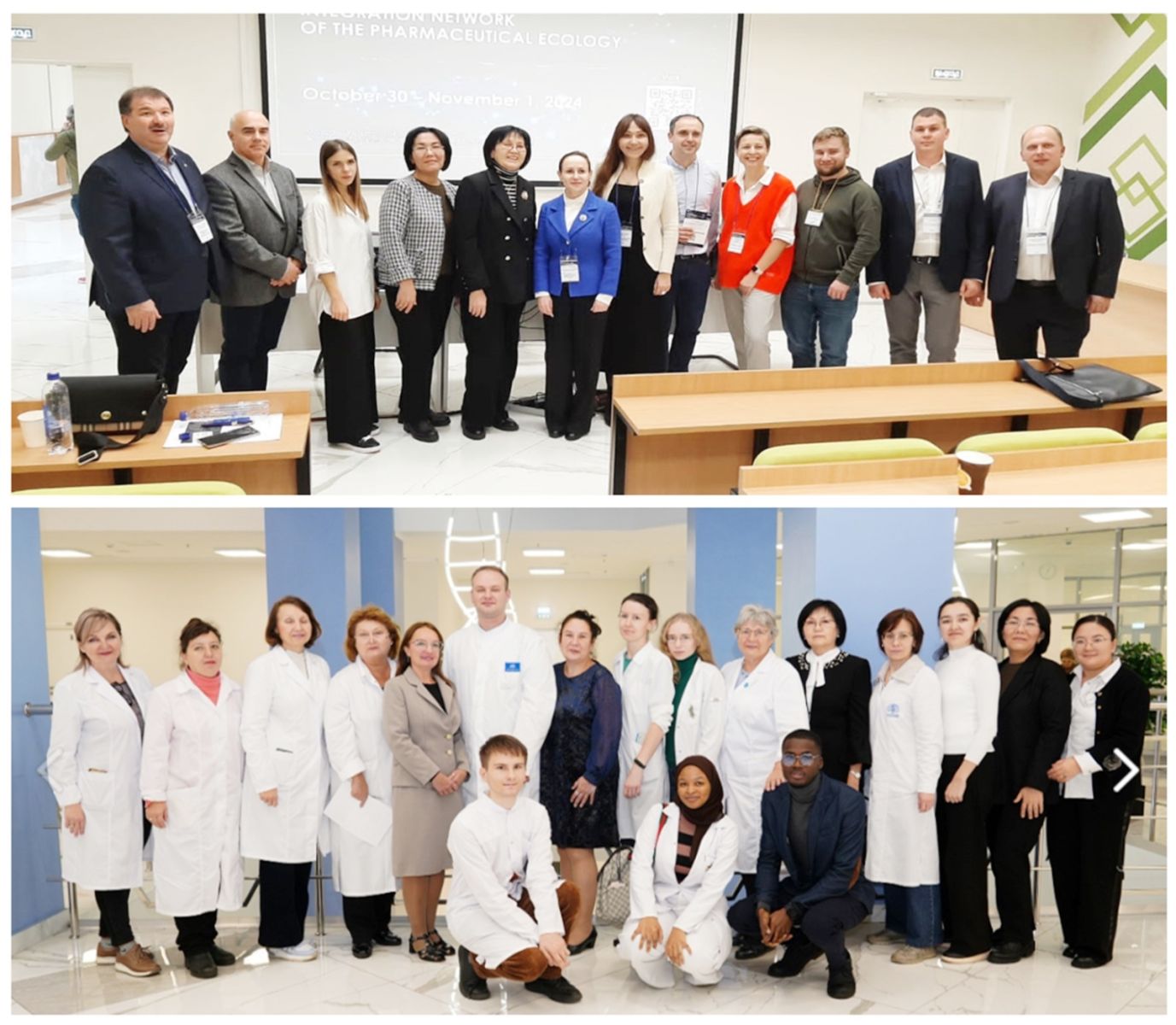
 681 views
681 views
